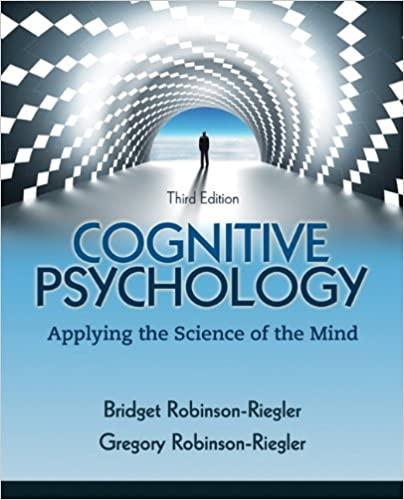Question
Briefly explain why the researcher in each of the following examples cannot unequivocally draw the conclusions that he or she has drawn. a) Two hundred
Briefly explain why the researcher in each of the following examples cannot unequivocally draw the conclusions that he or she has drawn.
a) Two hundred people are interviewed about their experiences on jury duty. The results indicate that they overwhelmingly approved of the U.S. system of law and the notion that people are innocent until proven guilty. The researchers conclude that serving as a juror reinforces American values and commitment to our system of justice.
b) A psychologist interested in the effects of the weather on mood has 20 individuals fill out a questionnaire measuring mood state both before and after a snowstorm. He finds people to be more depressed after the snowstorm than they were before the snowstorm. He concludes that weather does indeed affect people's moods.
c) A researcher who seeks to determine whether lectures or seminars (group discussion format) are the better vehicle for teaching research methods uses one mode of teaching for each of two lab courses taught in the same semester. The one taught on Mondays and Wednesdays from 6-8 pm is taught in a lecture format, and the one taught on Mondays and Wednesdays from 2-4 pm is taught in a seminar format. She finds that the test grades of students in the seminar course were higher throughout the semester than the test grades of those in the lecture course (the same tests were given to both). She concludes that the seminar format is the better one for teaching research methods.
Step by Step Solution
There are 3 Steps involved in it
Step: 1

Get Instant Access to Expert-Tailored Solutions
See step-by-step solutions with expert insights and AI powered tools for academic success
Step: 2

Step: 3

Ace Your Homework with AI
Get the answers you need in no time with our AI-driven, step-by-step assistance
Get Started


